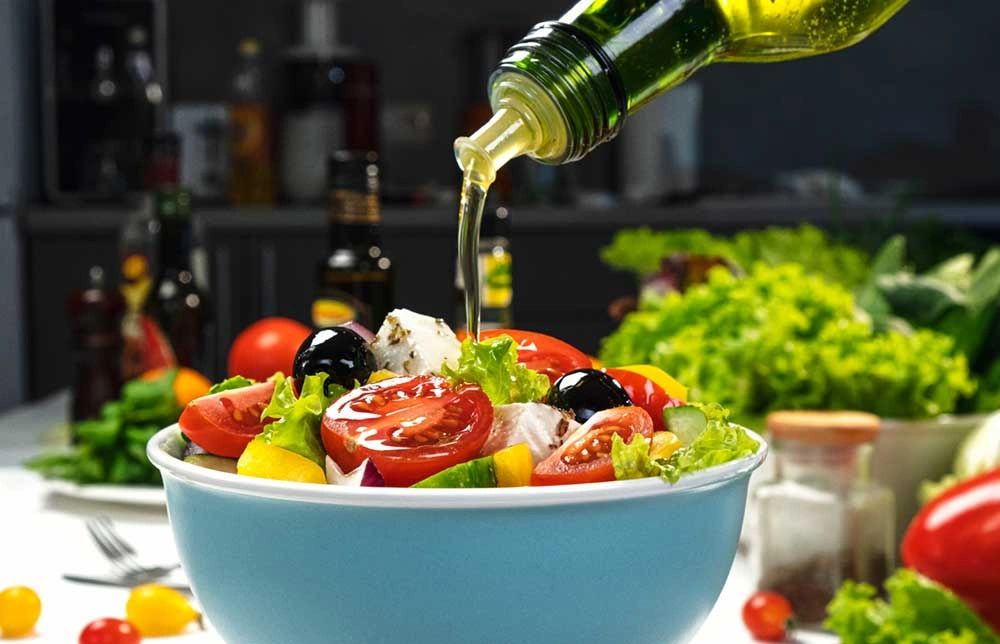Mediterranean Diet: A Safe and Delicious Option for Food Allergy
 Springtime is when allergies spring up. The allergens in the environment spike and this continues into summer. Antihistamines work to subdue the symptoms, but they have side effects that can leave you feeling worn out and listless. But you cannot go on sneezing and sniffling day after day. There is another way to fight allergies which has no negative side effects. It is good for you on every level. There is no secret as to what it is – it’s Mediterranean food.
Springtime is when allergies spring up. The allergens in the environment spike and this continues into summer. Antihistamines work to subdue the symptoms, but they have side effects that can leave you feeling worn out and listless. But you cannot go on sneezing and sniffling day after day. There is another way to fight allergies which has no negative side effects. It is good for you on every level. There is no secret as to what it is – it’s Mediterranean food.
Also Read: Turkish Food – The Real Turkish Delight
How Mediterranean Food Helps Fight Allergies
May is National Mediterranean Diet Month so it’s a great time to start adding this excellent and healthy cuisine to your daily diet. Not only can it help fight the effects of allergies – it is also lip-smackingly good and very healthy. Here’s how the common ingredients of Mediterranean food help to control allergic reactions:
- Carotenoids: These are antioxidants that promote healthy cell development. Fruits that are red, orange and yellow are especially rich in this substance. The protective benefits that carotenoids provide to the cells help to ease allergic reactions. The Mediterranean diet uses lots of squash, tomatoes, cantaloupes, oranges, beets, peppers and dark leafy greens which are excellent sources of carotenoids.
- Omega-3 Fatty Acids: Among the many health benefits of omega-3 fatty acids are the anti-inflammatory effects it has on the metabolic system which help reduce the severity of allergic reactions. Mediterranean food uses winter squash, beans, spirulina, wakame, sardines, cod, mackerel, herring, menhaden, salmon, walnuts, flaxseeds, hemp seeds and chia seeds which are rich in omega-3.
- Vitamin C: Among the many properties of this vitamin is its ability to reduce inflammation by reducing histamines and speeding their break up. The oranges, watermelons, apples, strawberries, peppers and broccoli that Mediterranean food uses are great sources of this vitamin.
- Folate: Folate, or vitamin B9 as it is also known, is very effective in reducing histamine levels in the body, thereby reducing the strength and duration of allergic reactions. The Mediterranean diet uses lots of chicken, turkey, chickpeas, lentils, pinto beans, black-eyed peas, spinach, okra and oranges which are excellent sources of folate.
- Resveratrol and Quercetin: These naturally occurring substances have excellent anti-histamine properties. Many allergy medications incorporate them into their formulas. That being so, why not enable the body to ingest them naturally? Red grapes, grape juice, peanuts and mulberries are good sources of resveratrol and black tea, onions, broccoli and apples are rich in quercetin. All of these are an integral part of the Mediterranean diet.
Also Read: Debunking a Big Deli Myth
No one claims that a Mediterranean diet will protect you from allergies. This is not a type of medication or a silver bullet against medical problems. It is a diet that is rich in various compounds that boost your immune system and metabolism and act to protect the functioning of vital organs like the heart. This food is tasty, nutritious and quick and easy to prepare. So what do you have to lose by adding Mediterranean food to your diet? Nothing! You don’t need to go to an expensive restaurant to get great traditional tabbouleh, the best kebabs and other wonderful Mediterranean food that is healthy and will help reduce the severity of allergic reactions. To get started, visit a Mediterranean grocery store and pick up the ingredients to make a great healthy meal at home.
- May 29, 2023
